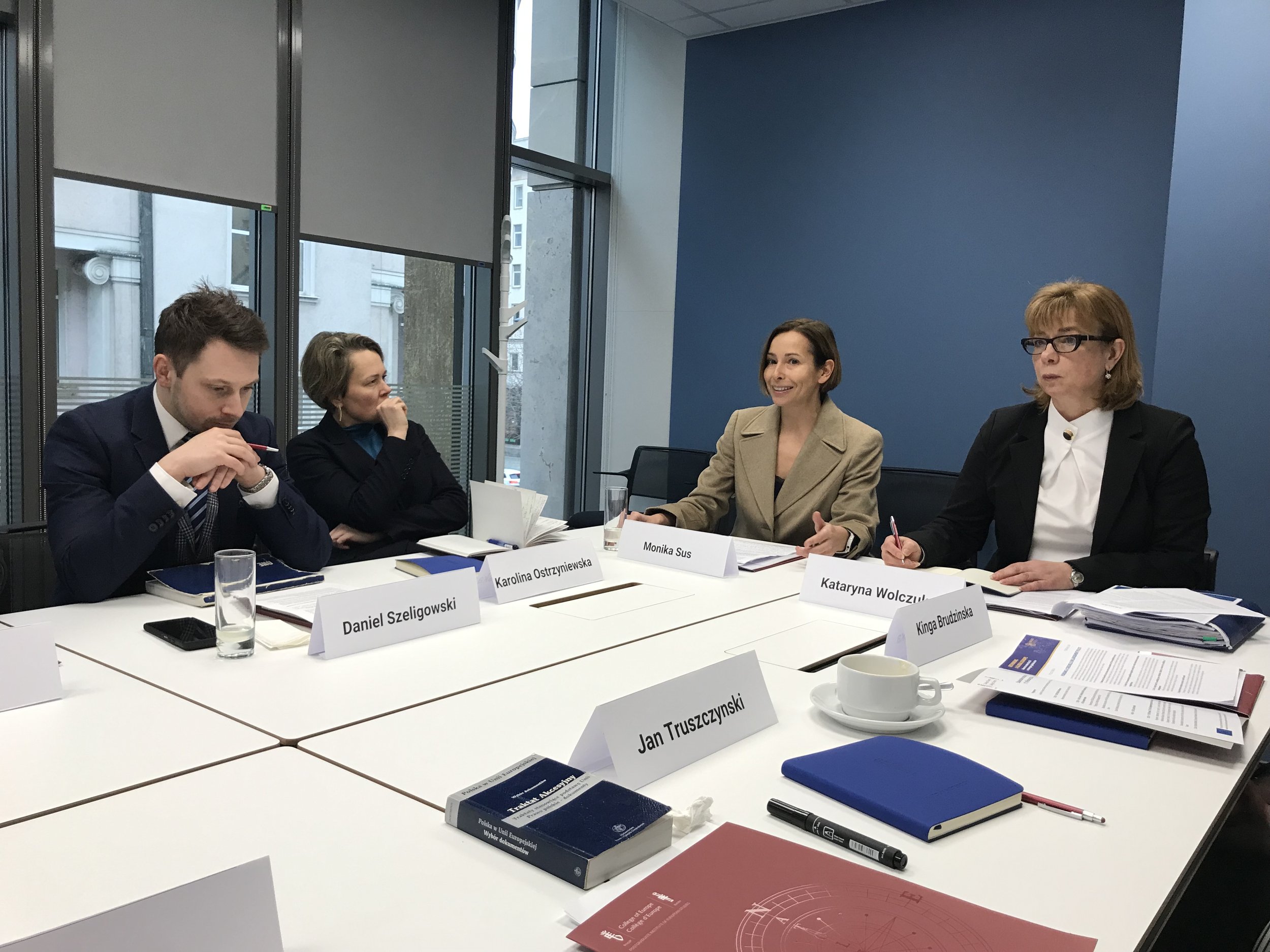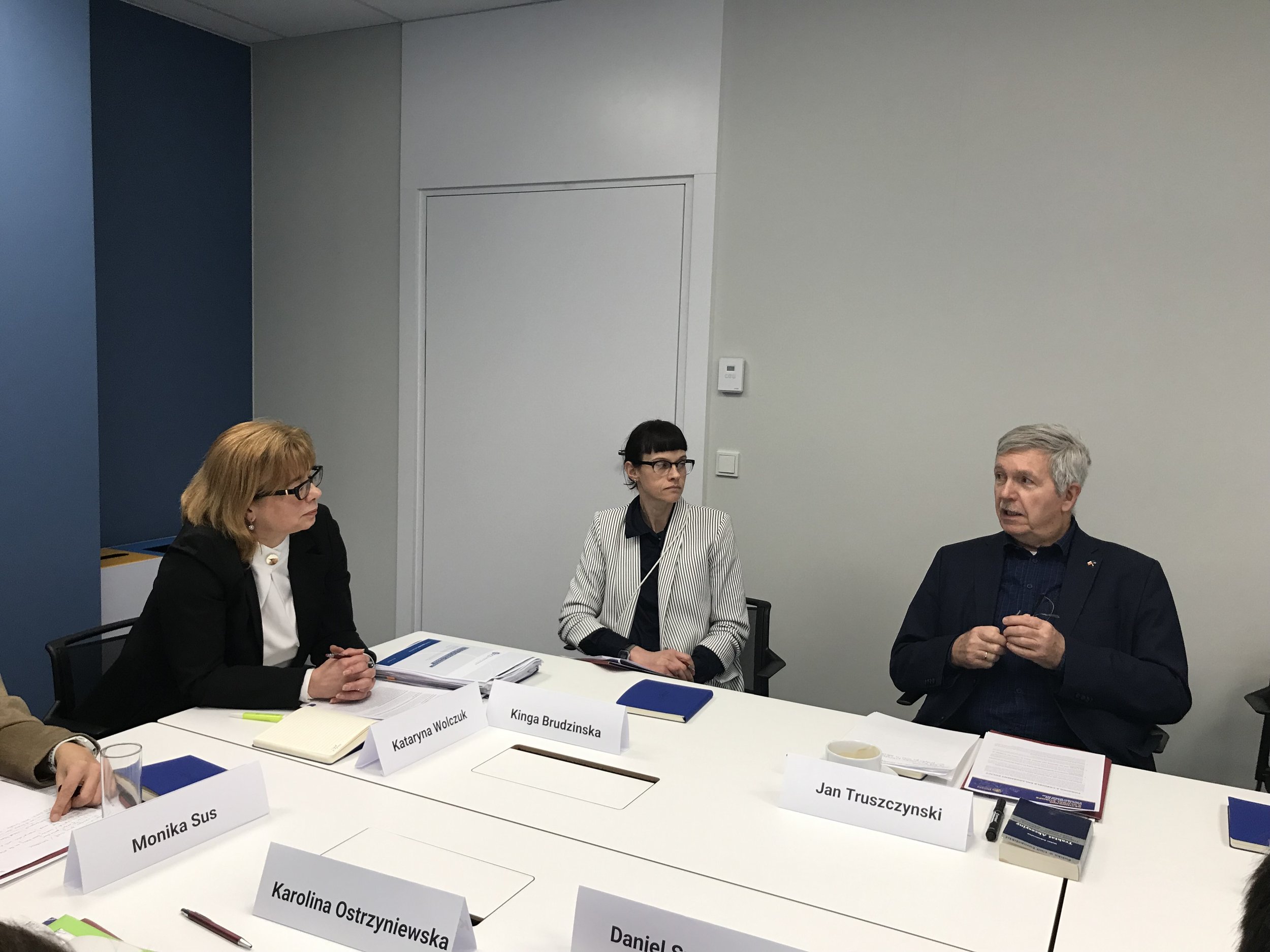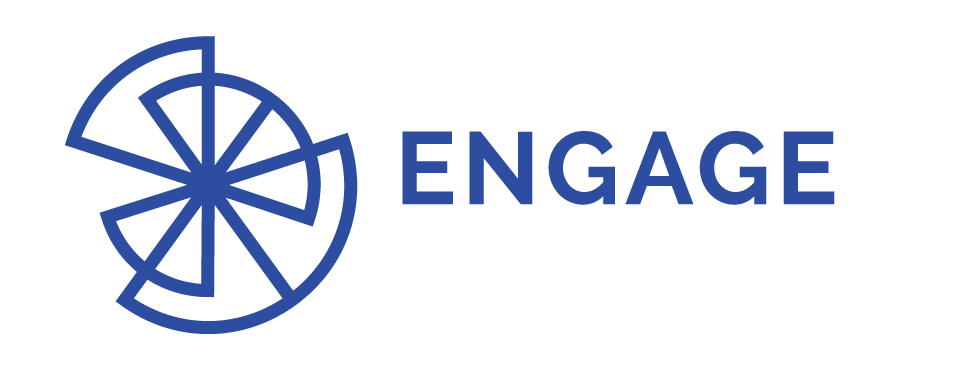The future of the European Neighborhood Policy and Enlargement
Warsaw, Poland
Wednesday, February 7, 2024
The Warsaw Stakeholder Workshop on enlargement took place on February 7, 2024. The meeting was organised by the College of Europe in Natolin as part of the ENGAGE Stakeholder Workshop Series. Polish policymakers, officials and experts who attended the meeting shared their thoughts on how to move forward with the European Union's enlargement policy.
The panel - entitled "Revitalising the EU’s Enlargement Agenda: The Engagement of EU Member States" - counted with the participation of experts such as Jan Truszczynski, former Polish ambassador to the European Union and government plenipotentiary for negotiations on Poland's EU membership, Michal Matlak, Policy Advisor at the European Parliament, Karolina Ostrzyniewska, Head of the Department of European Affairs at the Chancellery of the Prime Minister of Poland, Piotr Buras, director of the ECFR Warsaw office, Daniel Szeligowski, head of the Eastern Affairs Programme at the Polish Institute of International Affairs as well as Elzbieta Kaca and Tomasz Zajac, analysts at the European Union Program at the Polish Institute of International Affairs. Professor Kataryna Wolczuk, European Neighbourhood Policy Chair at the College of Europe in Natolin, presented the ENGAGE project's policy brief on EU enlargement to kick-start the debate.
The discussion focused on the importance of enhancing the credibility of the EU's enlargement policy. Participants remarked that benchmarks – though necessary at the initial stages of the accession process – need to be revised for increased clarity and transparency. Thorough impact assessments of the effects of enlargement on both EU Member States and accession countries are also essential – not only to prevent unintended consequences, but also to highlight the economic benefits of enlargement to existing Member States. The creation of a rapid conflict resolution mechanism and the setting of realistic deadlines were some of the other ideas discussed. Importantly, participants reflected on the need for comprehensive internal EU reforms and a long-term development plan for an enlarged EU, including by reforming the Common Agricultural Policy, the Single Market and climate and cohesion policies. Also, questions of an incremental approach to enlargement have been discussed, especially with regard to Ukraine and proposals were made to, for example, integrate Kyiv into the Union’s foreign, security and defence policy, as soon as formal criteria are fulfilled.





